 I work in education because I enjoy teaching. But the way my district, and probably others like it, operates, is terribly flawed. The amount of acrobatics necessary to teach and be "liked" by students and administrators, is simply not sustainable over a thirty year career. Teaching in my school is like putting on a song and dance every period of every day.  When I see a colleague who works with a population similar to mine, who is beloved by students and administrators, it is because the "instruction" that occurs in their classroom is all sizzle and no steak. Their students decorate cupcakes with cell parts and make posters of biomes every day. Although I may have my students work on projects periodically, direct instruction and guided practice are still regular parts of their classroom experience. Integrity prevents me from going to work each day and doing anything else. 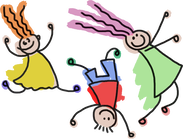 My students have difficult family circumstances and a steady diet of "play time" from many of my colleagues. I can only guess that my colleagues actually believe in what their doing or simply choose the path of least resistance. Either way, they enjoy a less stressed work-life than I because they aren't challenging students and thereby antagonizing administrators.  The children I encounter in my classes don't typically have role models who have studied or worked hard and achieved great success as a result. When presented with tasks that require reading or writing, some respond with inattentiveness, anger, disruption, or just assume a sleeping position laying across their desk. A few denounce me by saying that they do better work in their other classes. They complain about me to the administrative "team".  If I were beginning my career today, I simply could not sustainably generate the level of dynamism necessary to lift students' heads, driven like magnets toward their iron desk tops. I could not be untiring and relentless in search of their eye contact, their pupils focused on some invisible dust falling from the ceiling. It would be impossible to remain exuberant about my subject and listen only to crickets as students stare back at me blankly after I ask a question. Looking back over my decades in public ed., I would certainly choose a different path if I had a "do over".  My district is located in a small city. My students come from poor, mostly ethnic backgrounds. Regardless of their classification as regular or special education, my students all present with some educational encumbrance (cognitive, social, behavioral, attendance, etc.).  As a rural high schooler in the 1980s, the biggest behavioral issues I remember my teachers dealing with were whispering between seatmates, passing notes, and homework not being done. Based on my years teaching starting in 1990, the degradation of basic civility I witnessed in many classrooms finds its roots with incomplete parenting and a glamorization of rowdy and thuggish street life.  The reality is, children growing up in poor homes often spend less time exposed to reading, writing, and intellectual discussions on varied topics. Poor children, often lacking complete parental direction, simply entertain, rather than enrich themselves. Once in a structured classroom situation, their underdeveloped skills of focus, attentiveness, comprehension, and creative thought are glaringly obvious. They either disrupt, or withdraw from class activities as a means to gain attention or as a cry for help.  Two common school rules, prohibitions against hats/hoods and electronic devices, regularly go “unnoticed” in hallways by many staff members in my school. Directing a student in the hall to remove such an item typically results in insubordination and, perhaps, the student’s refusal to give his/her name. Additionally, response by administration to this type of offense is frequently inadequate, which undermines the referring teacher, the administrator themselves, and the school policy.  Students commonly move through hallways between (and often during) classes with headphones on and/or talking with “outside voices”. For many, it is less for the purpose of getting from one place to another and more for the purpose of socializing, bantering, or roughhousing with their friends. 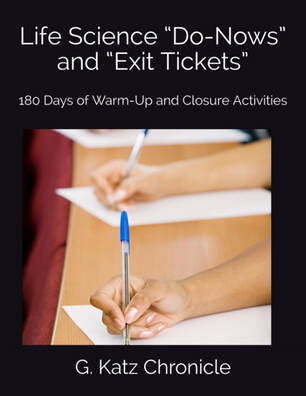 When they move into classrooms, some are in an excited state, some are distracted, but few are focused and receptive toward learning. Some teachers combat that by greeting students at the door to focus them. The strategy of using a “do now” is an attempt by teachers to engage students from the moment they enter the classroom.  Civility, the terra firma of public behavior is on the wane. Much like soil can be eroded by water, wind, and human action, the concept of a productive classroom has been under a multiple pronged assault. Teachers are told by administrators to "develop strategies" to manage all students. Direct instruction and the expectation that students produce a written work product has been denigrated and deemed inferior to "hands on" and "cooperative" or group methods. Add to that, school districts, pressured to increase the graduation rate, in turn, pressure teachers to pass all students. 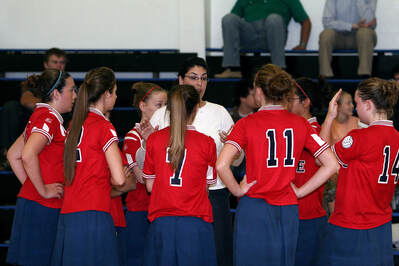 The manner of instructional delivery, once the sole purview of the person doing the instructional delivery is open to critique by administrators, guidance counselors, psychologists, social workers, or any others that are considered "support staff". Traditionally, in a typical school subject, such as math or science, there is a body of information or set of skills that a learner is expected to master before moving to the next level. The teacher, once considered an expert, or at least well versed on the subject, has been replaced by the idea of a teacher as a facilitator or coach. The concept of students being participants in their learning is a good one. Duh. It's called student engagement. If students don't give their attention to the lesson, there can be no learning. 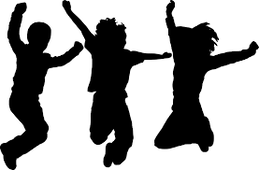 Unfortunately, the idea of active learning has become so adulterated it means that only "hands-on" activities are good. Active learning is when the mind is actively engaged. Simply moving the body doesn't mean learning is happening.  Rather than teaching discipline, school districts like mine have responded to the growing number of students entering school lacking basic needs such as adequate sleep, nourishment, proper hygiene, or medical care, being homeless, and/or exhibiting emotional or behavioral problems, by adding multiple social workers, psychologists, and other non-instructional personnel to their staff. These counselors, in addition to guidance staff, and administrators are collectively called "the administrative team" in my district. Rather than focus on working with families and children to get them to rise to expectations, teachers are counseled to have students use their hands to work on projects.  The shifting paradigm for public schools, a by-product of a justifiable public desire for fairness and inclusiveness and a rejection of intolerance and totalitarianism, has moved the education continuum to an overly permissive and indulgent state. Public schools in poor communities like that of my district have become ineffective at the purpose of teaching students the skills necessary to fully participate in society. The current proclamation made by many school districts that they "graduate all students all the time" is a disservice to individual students and the whole of society when their diploma belies the reality of students’ lack of basic skills. During my years in public education, I have witnessed an erosion of teachers' ability to create a calm, orderly learning environment for their students. Project based "hands-on" learning, by its nature, is less structured than directed instruction or guided practice. If novice learners with limited reading and comprehension skills are given a project to complete where each student may be working on a separate task, chaos ensues. 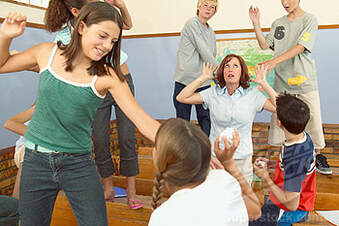 Since novice learners are not self-directed, they will require one to one guidance frequently. In a classroom with as many as three adults available for assistance, students will still wait for help. Children with limited academic focus will soon fill the "idle time" with some off-task or undesirable behavior. In that situation, I try to move quickly from student to student making sure they are productively engaged. If I were starting my career today I would not have the energy to put that kind of show on every period of every day for the next thirty years. I wonder what disciplined adult (Presumably someone who has earned a teaching degree after sixteen years of schooling has some discipline.) could host a hootenanny in their classroom daily without some ill health effects. A chaotic environment is entirely predictable and it is a major reason why I limit "hands-on" tasks to one or two per unit. In my opinion, the benefits of this type of "discovery learning" are outweighed by the amount of off-task time, the breakdown of a calm and orderly classroom space, as well as the fact that direct instruction is a more effective instructional tool in most situations with my students. But, as I said, some students revolt. Their skills are limited, so doing work in my class takes effort. Plus, they are asked to do so little in other classes….It is no wonder I'm considered a mean teacher!  In the structured learning environment I create, most students will try to do what is asked. I provide "scaffolds" (help) so that they can experience success. Unfortunately, some students misbehave. Just one or two can change the tone of a class. Other students are often negatively influenced and a mob mentality can ensue. This is especially true in groups of students with learning disabilities. The students who repeatedly act out or are unable to conform to a structured environment where academics are the focus are inappropriately placed. I believe this is true not only for my high school biology course, but for any public high school course. Teachers of academic courses should not need to modify direct instruction to support student presence in their classroom. Students in need of additional support for "learning style" or behavioral needs would achieve a more realistic success in an alternative setting.  Educators need to be honest. Students that aren't reading at least close to grade level once they enter ninth grade need a life- and work-skills track which will help them function meaningfully in the world. Let's stop scheduling students with significant learning problems in classes more suitable for a college track. Education is a right, as it should be. Society benefits from an educated populace. But public schools need to be mandated to develop programs that are appropriate for the range of abilities all students exhibit. Some students are simply not academic, but they will have other skills which they can develop.
2 Comments
Jenica
11/21/2019 10:58:08 pm
I appreciate what your article is saying. I am in year 11 and it hits home. I am still trying to find my path, how I can teach best. It has been a journey. This has helped me feel better about some of the decisions I have to make so that I can do this for the long term.
Reply
Leave a Reply. |
AuthorGertrude Katz has spent over 30 years teaching K-12 public school students all major subjects. She has taught biology and education at the college level. The majority of her career has been spent instructing biology at the secondary level. Categories
All
|

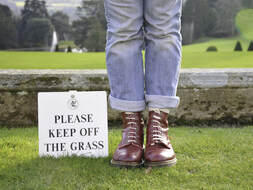

 RSS Feed
RSS Feed